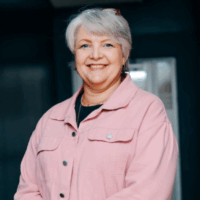In today’s digital age, those seeking skincare advice are bombarded with a large quantity of information online. While some sources offer valuable insights, I’ve seen how dangerous misinformation and trendy, unproven treatments can be. As a trained medical professional, I believe deeply in the role of the skin therapist in helping you cut through the noise, ensuring that you make safe, informed choices that prioritize skin health over fads.
The dangers of misinformation and self-treatment
Many turn to online platforms for quick solutions, often without an understanding of their skin’s needs. Unverified tips about DIY remedies, aggressive products, or untested home treatments. I’ve seen the harmful effects of trying to follow trends without proper guidance, reactions that worsen conditions, or introduce long-term damage due to inappropriate product use or incorrect techniques.
A case in point
One example I typically highlight is at-home microneedling. While the allure of this treatment lies in its affordability and convenience, it carries significant risks when not done by a trained professional. Home devices typically can’t be fully sterilized, increasing the risk of bacterial or fungal infections, which can lead to prolonged inflammation or more severe complications. Incorrect technique, such as using bent or dull needles, applying uneven pressure, or microneedling too frequently, can result in scarring, hypopigmentation, or post-inflammatory hyperpigmentation, especially in darker skin tones.
As Dr. Bradley Wagemaker, Medical Director at Lamelle Research Laboratories, puts it, “A trained skin therapist serves as a vital guide in navigating the complex world of skincare, translating science into safe, effective treatments and empowering patients to make informed decisions about their skin health.”
The role of the trained therapist
A skincare professional like myself is more than just your skin therapist; they’re a supportive partner in your emotional journey through the changes and evolution of your skin. As your skin reflects different stages of life, from hormonal shifts to the natural aging process, your therapist offers a personalized, deeply attentive service that adapts with you. Every treatment is tailored to your unique skin needs, acknowledging that no two skin journeys are the same. This differs from being in a store inundated with products that many are just trying to move off the shelf, with very little understanding of what is affecting your day-to-day life.
With a focus on care, understanding, and expert guidance, your therapist creates a safe, nurturing space where your skin is seen, supported, and celebrated – helping you feel confident and connected in every phase of your life.
Here is how your skin therapist can help you in the right skincare direction:
- Educating about evidence-based practices: Skin therapists can clarify myths versus facts and emphasize the importance of active ingredients supported by research.
- Personalized treatment plans: By understanding your skin type, history, and concerns, skin therapists tailor treatments that are safe and effective, discouraging the use of trendy but potentially harmful products
- Monitoring and adjusting treatments: Regular follow-ups allow therapists to adjust skincare routines based on progress and reactions, in return, minimizing risks
- Ingredient selection: Therapists educate on how active ingredients work, their benefits, and potential side effects, which enables you to make informed choices
Skincare science over trends
The allure of trendy products often overshadows the importance of understanding ingredients. Instead of falling for marketing hype, you should prioritize skincare science and focus on active ingredients, which are the foundation of effective skincare. Active ingredients like those found in our research laboratories and products, such as growth factors, retinoids, hyaluronic acid, vitamin C, niacinamide, and alpha hydroxy acids (AHAs), have proven benefits.
What you need to know before you use active ingredients on your skin
Furthermore, before using active ingredients, you should consider proper formulation, concentration, and application, which are all key to maximizing benefits while minimizing irritation. For example:
- If you are using a vitamin C serum with dry and sensitive skin, you need to look for one that does not require acclimatization of the skin.
- Avoiding harmful combinations, some ingredients can interact negatively, where a therapist can guide clients on safe combinations, such as avoiding excessive use of acids and retinoids together without guidance
- Choosing the right ingredient for the right indication, like salicylic acid for acne-prone skin or vitamin C for stubborn hyperpigmentation this ensures each product targets its specific concern accurately.
The bottom line
While online advice can be a valuable resource, it often lacks the small details and safety considerations that a trained therapist provides. Prioritizing skincare science over fleeting trends ensures patients use appropriate, effective treatments that support long-term skin health. Evidence-based formulations are designed to address real skin concerns with clinically proven ingredients. Professionals play an essential role in dispelling misinformation, educating about active ingredients, and customizing routines, ultimately empowering you to make safe, informed decisions in your skincare journey.
Who is the author?
 Karen Bester is a passionate and dedicated Medical Trainer at Lamelle Research Laboratories, where she combines her clinical expertise and strong communication skills to educate and support healthcare professionals across South Africa. As a Registered Nurse, Karen brings a deep understanding of medical science, patient care, and the importance of evidence-based skincare solutions.
Karen Bester is a passionate and dedicated Medical Trainer at Lamelle Research Laboratories, where she combines her clinical expertise and strong communication skills to educate and support healthcare professionals across South Africa. As a Registered Nurse, Karen brings a deep understanding of medical science, patient care, and the importance of evidence-based skincare solutions.
With a strong foundation in both nursing and skincare science, Karen thrives in dynamic, fast-paced environments where she can contribute meaningfully to professional development and patient outcomes. Her ability to connect with diverse groups, both clinically and culturally, makes her an invaluable part of Lamelle’s educational mission . Driven by a desire to make a difference, Karen views every training session as an opportunity to empower others through knowledge. She believes that caregiving is not just a profession, but a path to personal growth and self-awareness.



![women [longevity live]](https://longevitylive.com/wp-content/uploads/2020/01/photo-of-women-walking-down-the-street-1116984-100x100.jpg)










